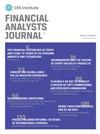Default Prediction for Housing and Utilities Management Firms Using Non-Financial Data
IF 3.4
3区 经济学
Q1 BUSINESS, FINANCE
引用次数: 0
Abstract
For many years, financial ratios have been used as predictors of default. However, biases in financial statements of companies in Russia call into question the applicability of this approach. An alternative approach is to use non-financial data in such models. The purpose of this paper is to find out whether non-financial data, such as information related to court trials, unscheduled inspections and firm age, can significantly improve the accuracy of default prediction in the housing and utilities management industry. This part of the services sector is chosen as one of the riskiest industries, in which firm default affects not only conventional stakeholders such as banks, shareholders, employees, etc, but also customers. A dataset of 378 housing and utilities management firms which have faced default and 765 solvent “healthy peers” is used to create and test default prediction models. Logistic regression is used as the classification algorithm. The results suggest that addition of non-financial data can significantly improve the accuracy of default prediction, and moreover, non-financial data can be used exclusively without any financial ratios to create classification models which show acceptable accuracy. The paper contributes to the existing literature by providing new evidence on the benefits of using non-financial data in default prediction models. In addition, we were able to collect a unique dataset of unscheduled inspections and use this data for default prediction, which appears to be the first case of this kind.使用非财务数据的住房和公用事业管理公司的默认预测
多年来,财务比率一直被用作违约的预测指标。然而,俄罗斯公司财务报表中的偏见使这种方法的适用性受到质疑。另一种方法是在此类模型中使用非财务数据。本文的目的是找出非财务数据,如与法庭审判、计划外检查和公司年龄相关的信息,是否可以显著提高住房和公用事业管理行业违约预测的准确性。服务部门的这一部分被选为风险最高的行业之一,其中公司违约不仅影响传统的利益相关者,如银行,股东,员工等,而且还影响客户。一个由378家面临违约的住房和公用事业管理公司和765家有偿付能力的“健康同行”组成的数据集用于创建和测试违约预测模型。采用逻辑回归作为分类算法。结果表明,加入非财务数据可以显著提高违约预测的准确性,并且可以单独使用非财务数据而不使用任何财务比率来创建具有可接受准确性的分类模型。本文通过提供新的证据来证明在默认预测模型中使用非财务数据的好处,从而对现有文献做出了贡献。此外,我们还能够收集非计划检查的独特数据集,并将这些数据用于默认预测,这似乎是此类情况的第一次。
本文章由计算机程序翻译,如有差异,请以英文原文为准。
求助全文
约1分钟内获得全文
求助全文
来源期刊

Financial Analysts Journal
BUSINESS, FINANCE-
CiteScore
5.40
自引率
7.10%
发文量
31
期刊介绍:
The Financial Analysts Journal aims to be the leading practitioner journal in the investment management community by advancing the knowledge and understanding of the practice of investment management through the publication of rigorous, peer-reviewed, practitioner-relevant research from leading academics and practitioners.
 求助内容:
求助内容: 应助结果提醒方式:
应助结果提醒方式:


